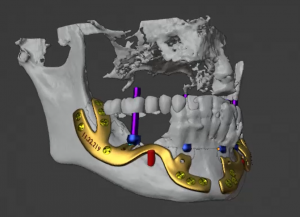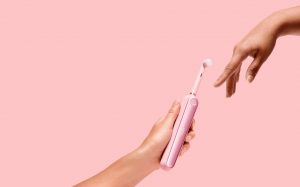Uncomfortable and dull pain in the jaw, worn and hypersensitive teeth. Do you notice any of these symptoms? If your answer is yes, it is very likely that you are suffering from bruxism.
It is a psychogenic conditioned gnashing and clenching of teeth that occurs mainly in sleep, but can also occur in the waking state. The forces that then act on the teeth, gums and jaw joints are much stronger than with ordinary chewing. There are two types of manifestations of this condition: gnashing that involves movements of the lower jaw and can be quite loud (people around you can notice or hear) or clenching of teeth that have no movement of the lower jaw and is therefore inaudible.
What are the causes and symptoms of bruxism?
Recent research shows that bruxism is caused by our internal ailments such as excessive stress, tension, and anxiety to which we are often exposed in the modern, fast-paced pace of life and work. Gritting your teeth will be more common in people who have a busy daily schedule and do mentally demanding tasks in a short time, such as students during exams. In addition to the stress factor, bruxism can also be genetically determined. Research shows that 21-50 percent of people who gnash their teeth in their sleep have a family member who has or has had the same problem. Bruxism can also be a side effect of certain medications.
The gnashing and clenching of the teeth usually takes place at night, so the person often does not even notice that something is wrong until the family warns him. However, there are other physical factors that can warn you that you are suffering from bruxism, and these are:
- Pain and discomfort in the jaw area that can spread to the ear and cause headaches (especially in the morning).
- Hypersensitivity of teeth to stimuli (hot-cold, sour-sweet).
- Tooth wear.
How dangerous is bruxism?
This condition can lead to negative consequences on the teeth, but also in the entire masticatory system. If not noticed in time, systematic tooth wear can lead to a decrease in bites and changes in facial physiognomy (aging appearance). The main problem is that patients do not attribute the previously explained pain in the area of the jaw, head and neck to bruxism, so they appear to the dentist only at an advanced stage. Therapy is then longer, more complex, and thus more expensive.
Help in the treatment of bruxism
Special tooth splints can prevent the negative consequences of gnashing and squeezing teeth because they will prevent further progression and wear of the teeth. If necessary, it will increase the bite, enable the correct position of the jaw joints and prevent headaches and pain. The splints vary according to the thickness and type of material, and are made individually for each patient by taking an impression of the upper and lower jaw. They are worn during sleep, are comfortable in the mouth and do not cause pain. They are worn for as long as the dentist deems necessary given the stage of bruxism. Splints keep the formation of your teeth, keep them in the correct position and can improve the quality of your sleep because there will be no more gnashing. If the patient has prosthetic work, it is very likely that the dentist will suggest making a splint in order to preserve the quality of work and to protect it.
If you have identified yourself in this text, contact us with confidence!




